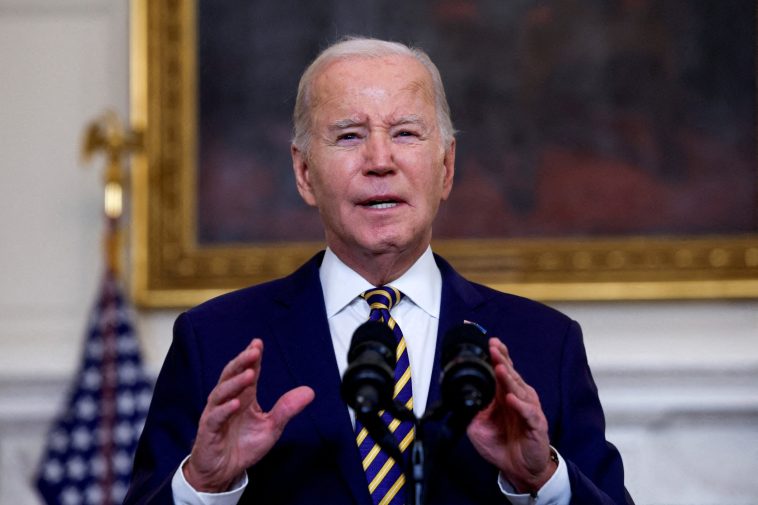A ruling from a Texas federal court recently dismantled a mandate placed by the Biden administration on states and cities to tabulate and implement strategies for curbing greenhouse gas emissions associated with transport. Critics, primarily from the Republican fold, characterized the rule, proposed by the Federal Highway Administration (FHA), as an excessive reach of federal power.These critics suggested that this move was essentially the Biden administration imposing its climate-focused policy on more traditionally conservative states. This idea resulted in Texas taking legal action in December to invalidate the rule, a move which gained favor with the court this past Wednesday.
The court noted that a federal administrative body does not have the ability to act without the sanction of Congress. The ruling stated that the FHA created a rule that imposed requirements on states to establish, report, and set progressively reducing goals for the carbon dioxide releases from vehicles using the interstate and national-highway systems. This was deemed as an overreach of their authority.
Texas put the compliant forward, stating that the administrative agency did not have the authority to implement such a rule. The court concurred with this viewpoint, citing the statutory language and context that clearly demonstrated the lack of requisite authority.
The Judge, James Hendrix, appointed by Trump, penned this decision in a 49-page file. Judge Hendrix stressed on the point that the Department of Transportation made unsuccessful attempts to override the clear legislative limit on approved performance measures. He noted these measures should be restricted to those that evaluate the physical state and efficacy of the national and interstate highway systems.
Judge Hendrix emphasized that for any mandate from the federal government obliging states to undertake greenhouse gas assessments, an amendment to an existing law or the execution of entirely new legislation is mandatory. The law in question that might call for an amendment is the 23 U.S. Code Section 150, related to national-highways and interstates.
The opinion of Hendrix was consistent with a popular understanding of governmental overreach. Earlier, Congressional authority would be required if the federal government were to oblige states to invest the necessary time and resources to determine and record emissions and to define gradually reducing emission goals, he said.
Judge Hendrix stressed, ‘If the citizens, through their elected representation in Congress, determine that states should allocate the resources toward monitoring and reporting on greenhouse gas emissions, and setting targets for their progressive reduction, then they may do so by changing Section 150 or passing a new legislation. It is not the place of an agency to make this judgement on behalf of the people.’
The court’s decision was hailed by Republican Congressional representatives. Significant among them were Sam Graves (R-MO), the Chairman of the Transportation and Infrastructure Committee, and Rick Crawford (R-AR), the Chairman of the Highways and Transit Subcommittee.
The celebration of the court’s decision among these Republican leaders was due to their belief that this was an absolute example of overreach on part of the Biden administration. They commended the court for its affirmation that a ‘federal administrative agency cannot act without congressional permission.’
Graves and Crawford jointly stated, ‘From the outset, this was clearly a case of the Biden Administration exceeding its remit, and we applaud the Court’s ruling.’ They noted that the agency acted without the requisite Congressional mandate, which makes the overreach even more egregious.
They pointed out that the inclusion of a greenhouse gas performance measure prerequisite was explicitly declined when the infrastructure law was formulated. Thus, they argued that the Biden administration’s rule-making was an unlawful attempt to sidestep Congress and impose this burden on every state and community in the nation, regardless of their unique circumstances.
The sense of victory reverberated among the states that held similar views to the notions of the Republican leaders. Their belief was that the federal mandate, particularly without the prerequisite legal authority, constituted an undue imposition on the states.
With this decision, those in agreement perceive it as a necessary check on the powers of the executive branch. For these states and cities, the ruling protects their sovereignty, allowing them to make decisions best suited to their specific circumstances rather than being subject to a one-size-fits-all requirement.
Above all, this particular case offers an insightful study into the ongoing debate about federal overreach. The issue of greenhouse gas emissions and the related regulations are indeed crucial discussions for our time, but they ought not to be imposed in a way that overrides the necessary due processes set in place to ensure balance of power.



